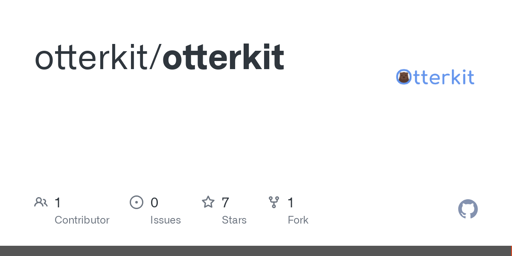Introducing Otterkit COBOL

Given that this is a community about the COBOL programming language, I’d like to take the opportunity to make a post about this project that I’m a part of. Our goal is to create a compiler implementing the ISO 2023 standard of the COBOL language. If you’re confused/interested in what that means, please read further.
Why a new COBOL Compiler?
It is often believed that COBOL is an antiquated and archaic language: the logo of this community is literally a dinosaur. But this is not true. Did you that as of the most recent version (ISO 2023), the language has:
- objects and classes
- generics
- concurrent async both locally and remotely (message passing)
Sounds more like a Java or C# than a fossil, doesn’t it?
As the “2023” in “ISO 2023” implies, the language has been evolving ever since it was created in the '50s. But why is the reputation of this language so bad? Firstly, it is that most code in COBOL adheres to the old 1985 standard: that was when the GNU manifesto was first published! This means that the language has been functionally stuck in the public eye for decades, as enterprise systems see little reason to put effort into modernization. This leads to a self-fulfilling prophecy, where COBOL programmers are assigned to tangles of technical debt and even FOSS compilers like GnuCOBOL target the 1985 standard because it’s the one that’s used. But it doesn’t have to be this way.
A Vision of the Future
It is our belief in the Otterkit Project team that modern COBOL, once free of propriety vendor lock-in and outdated stereotypes, has the potential to be a modern - nay, insightful language that deserves a place in the current programming language landscape. That’s why we’re making an Apache 2.0-licensed COBOL compiler on the .net platform to bring modern COBOL out in the open. This way, we hope to prove that even dinosaurs can walk again.
We would appreciate any help we can get: below are links to a presentation team head KT made on the project for the .net youtube channel, and a link to the github repo. Please take some time to look around, and if it strikes your fancy please consider contributing with either code or money, any bit helps.
Useful Links
Github Repo: https://github.com/otterkit/otterkit
Presentation: https://www.youtube.com/live/UASkE7cojSE


